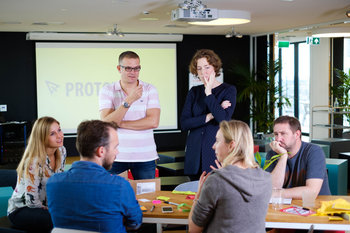
Exponential vs Hyperbolic
Most observers will agree that technology is advancing at at least an exponential rate. According to some theorists, it is increasing at a hyperbolic rate, meaning that it will suddenly jump to infinite advancement.Problems
Technological change results in dramatically power shifts, rapidly evolving risks and increasing destructive powers such as weapons. It also leads to a great number of choices for how technology should be used to change society, culture and the planet. As such, technological change is a primary driver of human conflict. Managing the risks of new technology and coming to agreement on how to use and govern new technological powers is a challenge for governments, institutions and communities. Typically, a new technology is first implemented by technologists without much consideration to its economic, social or cultural impact or risks. Eventually society reacts and tries to shape it to improve quality of life and manage risk.| Overview: Accelerating Change | ||
Type | Technology Principle | |
Definition | The theory that technology changes at an exponential or hyperbolic rate. | |
Related Concepts | ||










